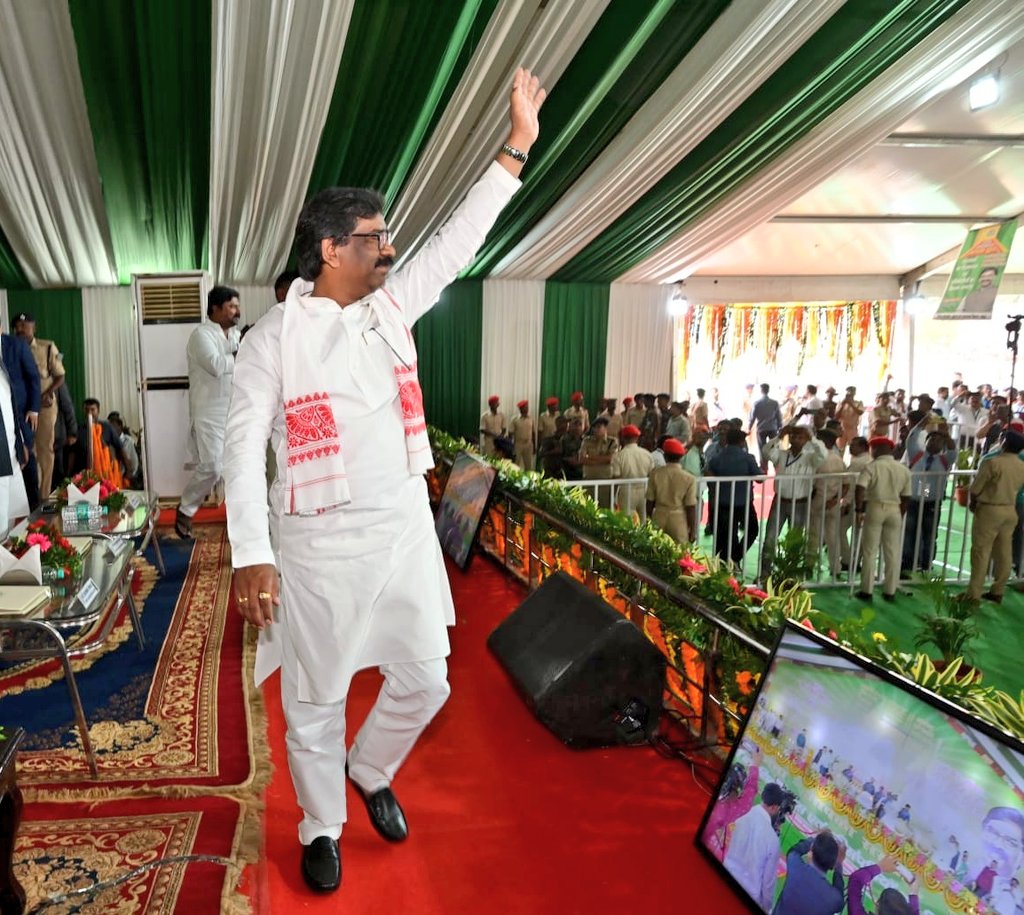New Delhi, Nov 9.
The Supreme Court has said that PILs, demanding that courts initiate the criminal process against a sitting Chief Minister over alleged acts of corruption, will not be maintainable.
The top court set aside Jharkhand High Court’s June 3 order which allowed three PILs against CM Hemant Soren seeking CBI, ED probes into alleged acts of corruption against him.
“We are not… saying that people who occupy high offices should not be investigated, but for a High Court to take cognizance… on… generalized submissions which do not even make prima facie satisfaction of the court, is nothing but an abuse of the process….”
“Nondisclosure of credentials of the petitioner and past efforts made for similar reliefs as… mandated under the Rules, 2010, further discredits these petitions,” the bench said in a ruling delivered on Monday.
Furthermore, the allegations made by the petitioner are vague, generalized and not at all substantiated by anything worthy to be called evidence.
“It was not proper for the High Court to entertain a PIL… based on mere allegations and half-baked truth that too at the hands of a person who has not been able to fully satisfy his credentials and has come to the court with unclean hands.”
Two PILs were filed by one Shiv Shankar Sharma on alleged financial corruption by the CM and mining lease largesse that he got in violation of rules. The second was filed by one Arun Kumar Dubey, seeking a probe into alleged siphoning of MGNREGA funds.
The “alleged acts can easily come within the ambit of statutory offences such as those of ‘possession of assets disproportionate to known sources of income’ as well as ‘criminal misconduct’ under the Prevention of Corruption Act, 1988.”
“The onus of launching an investigation into such matters is clearly on the investigating agencies such as state police, CBI, CVC among others.
“It is not proper for this court to give directions for initiating such an investigation under its writ jurisdiction,” the court said.
Although fears were raised about the possibility of obstruction of efforts to uncover alleged corruption by vested interests, statutory remedies must be first exhausted and only thereafter can he approach the High Court, the top court said.
In the present case, no effort has been made to approach the statutory authorities or register an FIR.
A fundamental requirement for issue of a writ of mandamus is that the petitioner must have sought such a relief before the appropriate authority, a bench, comprising former CJI Uday Umesh Lalit, S. Ravindra Bhatt and Sudhanshu Dhulia, said.
It is true that in the past, the Supreme Court and High Courts have indeed granted remedies relating to investigations in criminal cases, the court said.
Writ jurisdiction has been used to monitor the progress of ongoing probes or transfer ongoing investigations from one agency to another. Such directions have been given when a specific violation of fundamental rights is shown, which could be the consequence of apathy or partiality on the part of investigating agencies among other reasons.
In some cases, judicial intervention by way of writ jurisdiction is warranted on account of obstructions to the investigation process such as material threats to witnesses, destruction of evidence or undue pressure from powerful interests.
In all these circumstances, the writ court can only play a corrective role to ensure that the integrity of the investigation is not compromised. However, it is not viable for a writ court to order the initiation of an investigation.
That function clearly lies in the executive’s domain and it is up to investigating agencies to decide whether the material produced before them provides a sufficient basis to launch an investigation.
It must also be borne in mind that there are CrPC provisions which empower the courts of first instance to exercise a certain degree of control over ongoing investigations.
The scope for intervention by the trial court is hence controlled by statutory provisions and it is not advisable for writ courts to interfere with criminal investigations in absence of specific standards for the same.
In this specific case, the court said, the petitioner has chosen to file this PIL only after Soren became the state CM. “We do not find any bonafide in this PIL filed by the writ petitioner and the writ petition is liable to be dismissed with costs.”
The petition is dismissed with costs of Rs 50,000, to be deposited within 6 weeks before the Jharkhand State Legal Services Authority, Ranchi.

